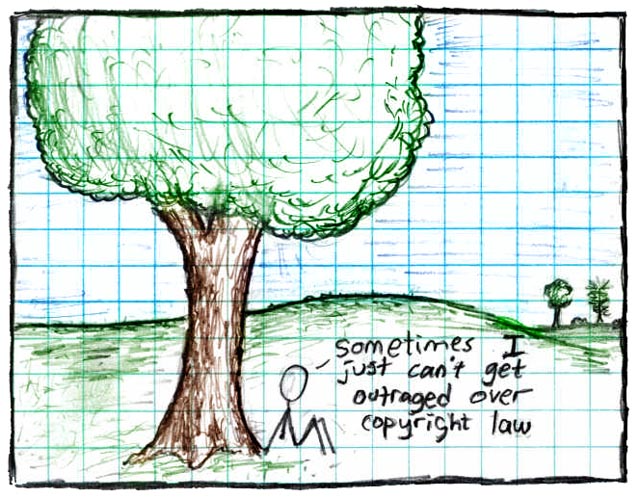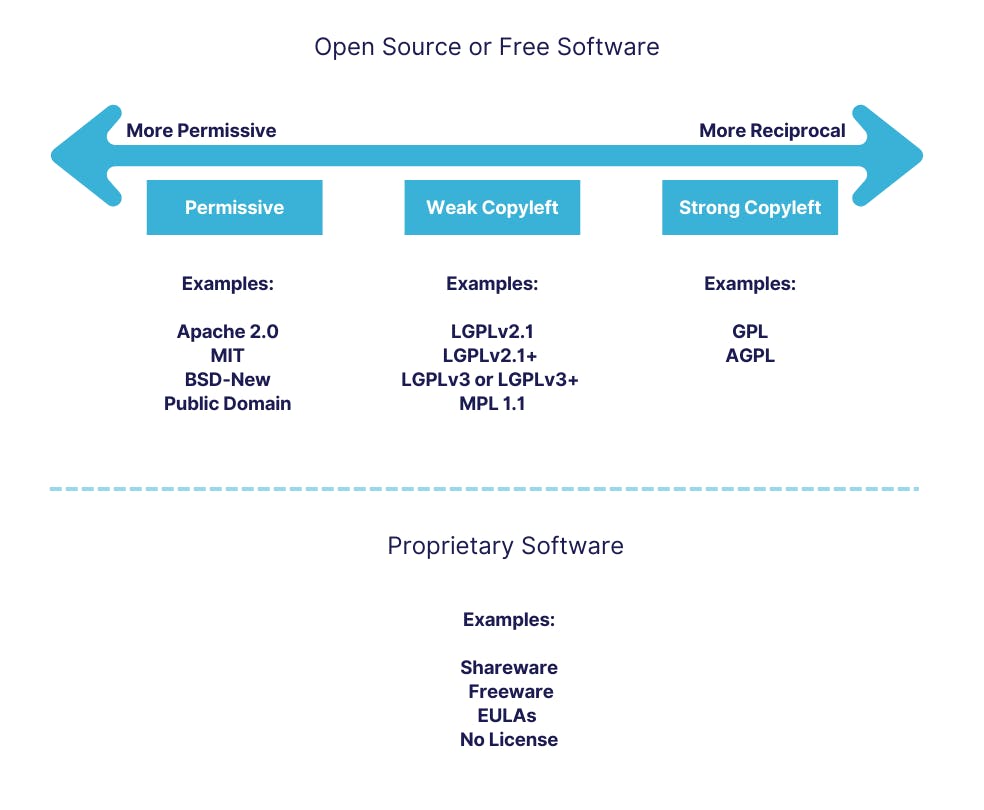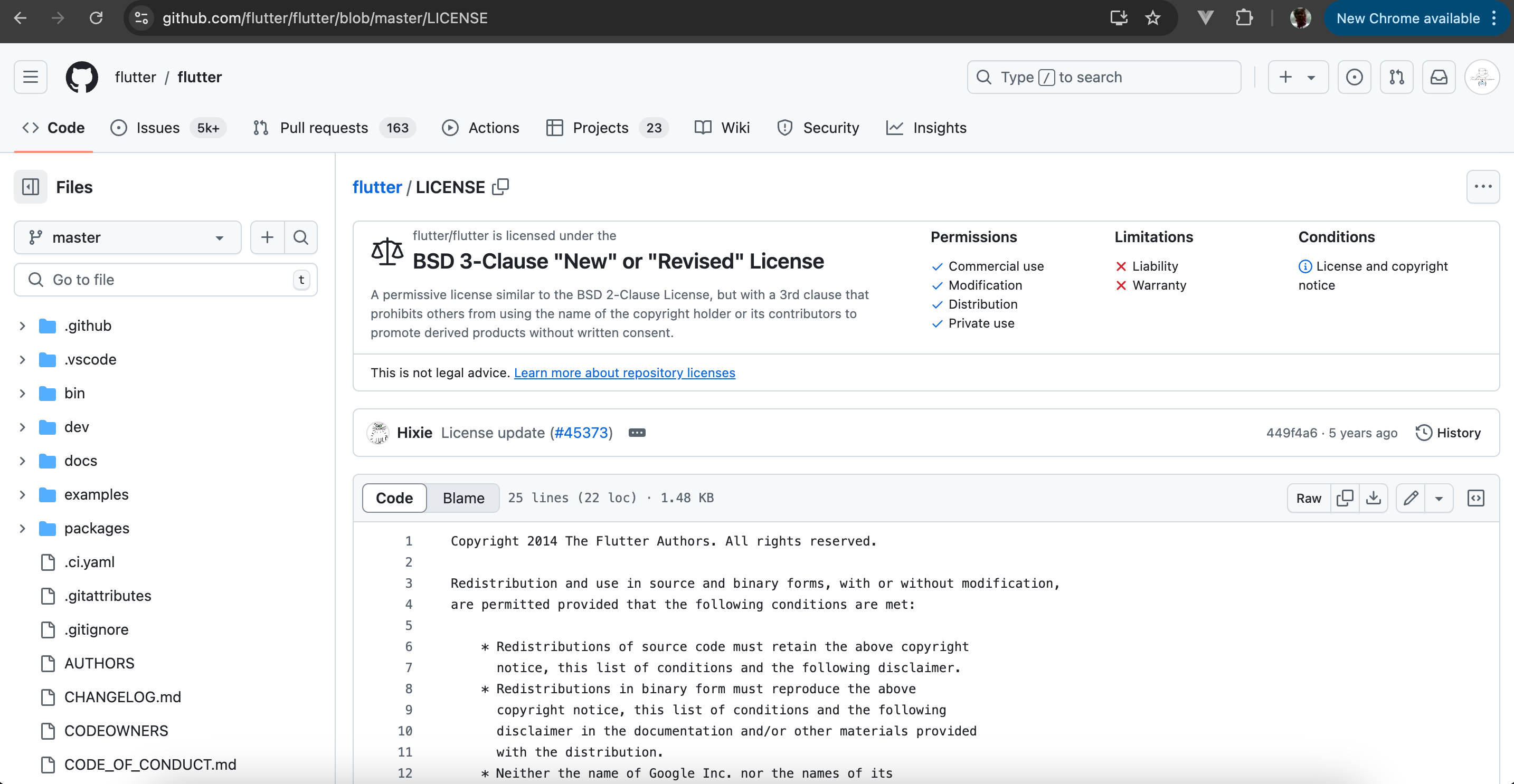Software Licensing: Why It Matters for Your Business
 Romarie Tsuchiya
01/08/2024, 12:03 AM
Romarie Tsuchiya
01/08/2024, 12:03 AM

In the fast-paced world of software development, using third-party libraries has become a smart strategy for many developers. These ready-made resources streamline the development process, enabling faster work and enhancing product quality with minimal effort. As a result, projects can be delivered more quickly and efficiently, leading to greater client satisfaction. However, navigating the benefits and legal considerations of these libraries is essential for optimal use and maintaining a strong professional reputation. An important question to consider is whether the library is free to use and if any restrictions apply. Are you allowed to use it in commercial projects? Understanding the terms and conditions is crucial as non-compliance can lead to legal issues and harm your reputation.

From xkcd.com, provided under CC-BY-NC-2.5
Understanding Software Licenses
A license tells people how they can use and share code, and how it can be combined with other software. In fact, much of the technology we use today exists because of licensing decisions made by creators. If you want to use someone else’s work, it’s important to follow the rules of the license they’ve chosen.
As a software developer, you’ll likely come across open source materials—like software, tools, or designs—either at work or in personal projects. Even though these resources are often "free", they usually come with a license that tells you what you can and can’t do with them. The person who created the material picks the license.
Copyright laws give creators exclusive rights over their work. These rights typically include the ability to copy, modify, and distribute the work. The exact rights might vary depending on the country, but the idea is to protect the creator’s control over their creations.
So a license is a formal agreement that grants users specific rights to use, share, and distribute software. It sets clear guidelines on how the software can be used, outlining the users' responsibilities and the limits on liability for both the creator and the users.

Type of Software Licenses
Software licenses can generally be classified into two categories: free of often called open source software and not free / proprietary.
1. Open source licenses which based on the Open Source Initiative's guidelines, allow software to be freely used, modified, and shared. They fall into two main types:
These licenses fall into two main categories:
- Permissive Licenses: Minimal restrictions, allowing use in proprietary software.
- Copyleft Licenses: Requires redistributed or modified versions to maintain the same freedoms.
Weak Copyleft:
- Lesser GNU Public License (written as LGPL-2.0, LGPL-2.1 or LGPL-3.0)
- Mozilla Public Licenses (written as MPL-1.0, MPL-1.1 or MPL-2.0)
- Eclipse Public License (written as EPL-1.0 or EPL-2.0)
- Common Development and Distribution License (written as CDDL-1.0 or CDDL-1.1)
Strong Copyleft:

The figure above illustrates the BSD-3 Clause "New" License, which is used by the Flutter Framework. According to the terms outlined in the license file, anyone is permitted to use, modify, and distribute the software, provided they comply with the conditions specified in the license.
Licenses may also include a Patent Grant (explicit or implied) or No Patent Grant none. A Patent is a legal right given to someone who invents something new, useful, and non-obvious. It allows the inventor to stop others from making, using, selling, or importing the invention for a set period.
2. Proprietary licenses are not free and give most rights to the software creator, with added restrictions on what users can do. These licenses are tied to a specific company or project. Some proprietary software requires payment to use, while others may be free but still restrict how the software can be used or modified.
Note: Some software may be free to download, but if it's not under an open source license, it isn't considered open source. If no license is provided with free software, you can't assume it's open source, as the permissions to use, modify, or share the software are not clearly granted.
To learn more about open source licenses, check the Open Source Initiative's website - "Licenses & Standards".
To Conclude
While many businesses seek to cut costs by using free tools and software, it's important to recognize that these solutions often come with hidden risks and potential future expenses. Using properly licensed software is not only the legal approach, but it's also the best way to ensure reliability and avoid complications down the line. Partnering with a technology procurement service provider gives you access to trusted, licensed software that can help your business thrive without the risks associated with unauthorized tools.
Contact Technopresso For Software Licensing
Now that you understand the importance of software licensing, choosing the right solutions provider is crucial. At Technopresso, we offer robust IT services and solutions tailored to your needs. Our user-friendly software solutions allow you to focus on growing your business without worrying about security or protection.
Contact us today to learn more!
email address: admin@technopresso.com
website: https://technopresso.com/
